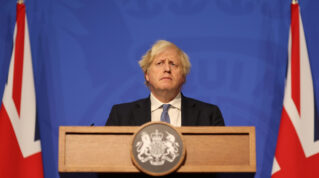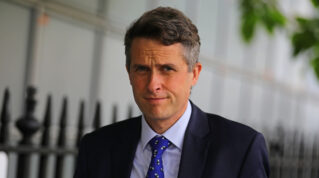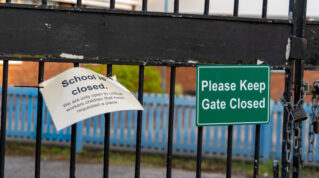Five education unions plan to challenge schools attempting to keep children in face-to-face learning by following government advice to combine classes amid staff shortages.
Education secretary Nadhim Zahawi called for a “flexible approach to learning” to keep as many children in the classroom ahead of expected disruption from a surge in cases of the Omicron Covid variant.
Updated government guidance advised schools “combining classes” was one solution.
But a “safety checklist” from five teaching and support staff unions states this will only “increase virus transmission” and lead to “further disruption”.
The advice – issued by the NEU, NASUWT, UNISON, GMB and Unite – urges any teachers expected to accept pupils from other classes to “urgently” raise it with their union.
A spokesperson for the National Education Union told Schools Week while there is no “set response”, an official would likely discuss with school management “arrangements that they believe would work better”.
The move is likely to cause additional pressures for school leaders. Unions have also previously been accused of “scaremongering” by opposing school reopening plans.
Unions wrote to heads in June 2020 warning of their “legal liability” if they followed official government advice at the time.
The Department for Education announced new Covid safety measures this weekend, including recommending the use of face coverings in classrooms, ahead of schools returning this week.
Heads were also told to use staff “more flexibly” to keep children learning in the classroom amid staff absences.
‘Teach more children in school hall’
A case study on flexible learning published by the government from academy leader Ian Bauckham, also the chair of Ofqual, said two or more classes could be “combined and taught by a single teacher in a larger space such as a school hall”.
Exam desks could be used where other classroom furniture was not available, he added. The example was provided as an alternative to remote learning for schools with “exceptional levels of staff absence”.
Bauckham said heads would need to consider “health protection implications” of such a move. But mixing pupils in the same year group “should not be a concern” as they would likely be in contact with each other in different classes and in social time already, he added.
But the five unions say measures to minimise mixing and “keeping groups as consistent as possible” should be reintroduced instead.
Where school staff are “expected to cover routinely, or accept additional pupils from combining classes, this should be urgently raised with their union”, the checklist adds.
The new DfE guidance advises schools struggling with absences to consider “use [of] existing teaching, temporary and support staff more flexibly where required” to remain open.
But the NEU spokesperson warned: “No parent, child or young person wants to be taught by a teacher that is not qualified in the subject being taken for anything other than a short period. Nor would they see emergency cover being anything other than that and certainly not a long-term solution to a staffing problem.”
The unions also add that teachers should “not routinely be expected to cover for absent colleagues nor should they be expected to teach pupils who they have not been assigned to teach”.
They have also called for the return of one way systems and staggered lunch breaks should return.
The DfE said it would be for individual schools to consider if it was appropriate to merge classes but “face to face learning is rightly a priority”.
They added that children do not need to be kept in consistent groups.
Ofqual chair suggests ’emergency timetable changes’
Meanwhile, Bauckham also suggested “emergency timetable changes” to reduce staff pressures by “temporarily” suspending the teaching of some subjects.
A specialist teacher who would be normally be rotated between PHSE, RHSE or music could instead lead classes where the normal teacher is absent, Bauckham said.
He also suggested “it may be possible exceptionally to adjust the timetable so that the teachers concerned can be deployed to teach larger groups”.
He gave the example of “collapsing six groups of 20 in a practical subject into four
groups of 30 with a theory rather than practical focus to curriculum delivery”.
“This might release staff capacity to support elsewhere in the school, including to prioritise provision for exam cohorts,” he added.
The DfE has pledged to publish more case studies on handling learning during the pandemic shortly.















Groups of 20? Average class has 27 to 32 to kids!